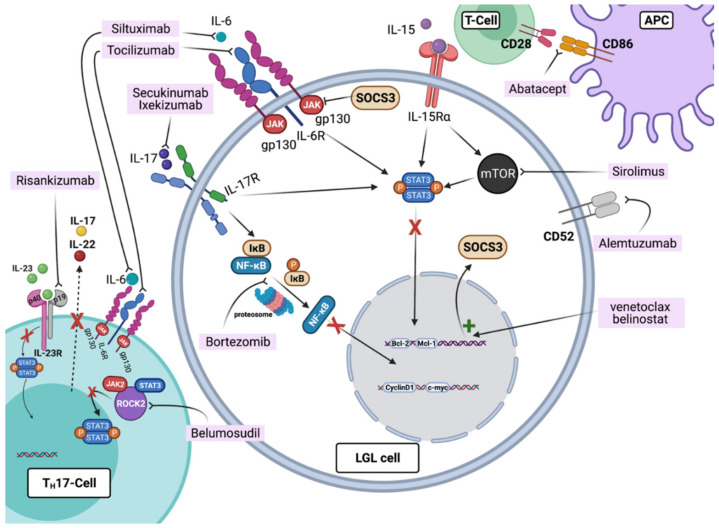Figure 2.
Pathways and agents described as having potential interest for the treatment of refractory LGLL. The humanized IgG1 Risankizumab is a mAB targeting the p19 subunit of IL-23 receptor and selectively inhibiting IL-23 and the STAT pathway, blocking IL-17 and IL-22 production. The ROCK2 inhibitor Belumosudil inhibits the STAT3 phosphorylation process. Anti-IL-6 mAB Tocilizumab and Siltuximab inhibit the JAK pathway by binding to the gp130 subunit. Secukinumab and Ixekizumab are anti-IL-17 mAB blocking the interaction with the IL-17 receptor with subsequent STAT3 and NF-kB pathway inhibition. Bortezomib is a proteasome inhibitor that downregulates the NF-kB pathway activity, ultimately blocking the degradation of different pro-apoptotic factors. Abatacept, by binding to CD80/CD86 on APC, blocks the CD28-mediated APC and T-cell interaction. Sirolimus is an inhibitor of the mammalian-Target of rapamycin (mTOR) kinase pathway, leading to cytokine-mediated T-cell activation and STAT3 inhibition. Alemtuzumab is anti-CD52, causing lymphocyte depletion through complement-medicated cell lysis and antibody-mediated cytotoxicity. Epigenetic modifiers such as Belinostat can restore SOCS3 expression, which results in STAT3 pathway inhibition. Figures were generated with BioRender.com (accessed on 20 August 2021).

